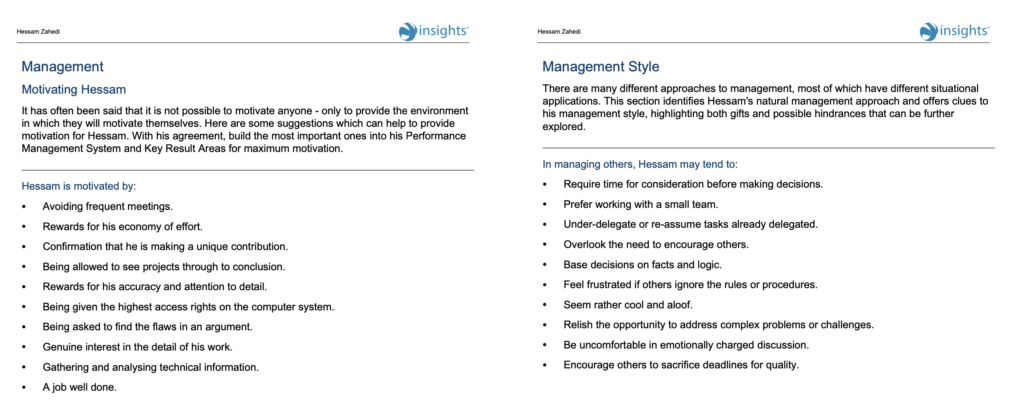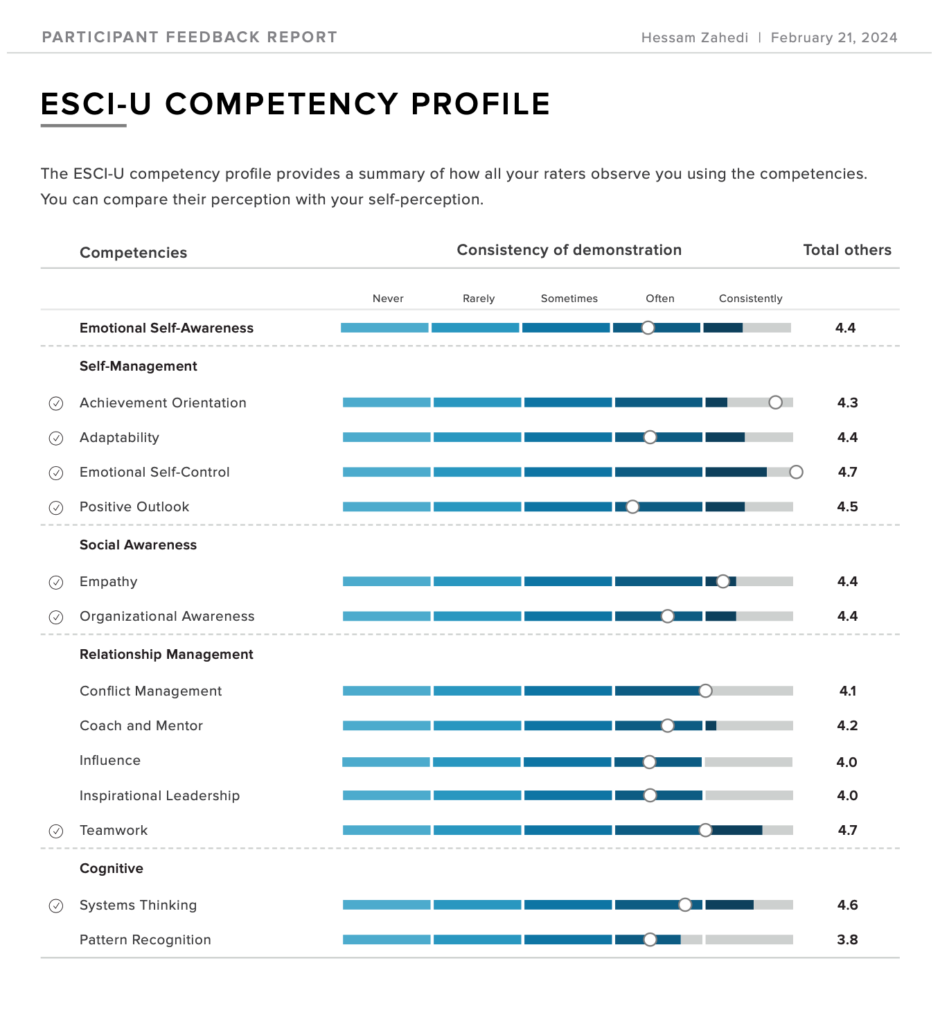Today’s effective leadership demands flexibility and adaptability; it’s not a one-size-fits-all endeavor. Leaders must be versatile, employing a range of strategies to navigate an ever-changing world. However, it’s crucial for leaders to maintain steadfast core values that reflects their character. in my case how I am, define how I lead, my unchanging principles provide a reliable foundation for others to work with me and entitle me to my unique style and imprint.
Authenticity is fundamental to my approach; being naturally introverted, I place a strong emphasis on active listening and sharing my perspectives thoughtfully when they can have a meaningful impact. This translates into a leadership style that avoids micromanagement, cuts down noise and distractions and instead encourages team members to take ownership of their work at their own pace, fostering an environment of effectiveness and impact.
I am dedicated to continuous learning and view myself as a strategic thinker, skilled at anticipating future challenges and devising creative solutions that align with our overarching objectives. Here are some of my other core values:
- Empathy – I choose this component of emotional intelligence among others (self-awareness, self-regulation, motivation, and social skills) not because other EQ skills are less important but because I believe this one requires the use of your ‘Active’ skills, Active Listening is a good example which creates a safe environment for all to ask questions and understand the substance of what the other person is saying. the discipline allows you to add an empathic focus on, in addition to an internal focus on people and technology.
- Curiosity – curiosity always helps to get more involved, drive innovation, and inspire others to do the same and speak out their ideas; this ultimately will lead to a greater sense of belonging for a team.
- Collective responsibility: I took this value from a company I used to work in, Merck & Co., Inc., in their case as a pharmaceutical company their core value was “Corporate social responsibility” among other important values, and this is of course can be translated to any industry not only towards your users and customers but also internal staff and people who you work with. We all contribute to having a successful team, enrich our jobs, and gain a sense of professional satisfaction.
- Respect the value of culture: Culture tells people what is expected, accepted, and respected in the organization.
- Humility: making space for and acknowledging others’ contributions, and recognizing my own areas of limitation
- Be an engineer in charge! – Expand, share, and be a champion of learning, a tech leader will produce change, set direction, align people, and provide motivation. although all good tech leaders will be able to understand the technical challenges, especially since many leaders struggle to evolve their workforce to remain competitive, l believe maintaining a high level of up-to-date engineering skills is important, you might have to adjust or even change your tech portfolio, but it is worth it, strategy realization requires tech expertise and besides from personal satisfaction, it creates a professional status among fellow engineers!

My Personal ‘Insight Discovery’

Based on the extensive research of Swiss psychologist Carl Jung, Insights Discovery offers a framework for self-understanding and development. Research suggests that a good understanding of self, both strengths and weaknesses, enables individuals to develop effective strategies for interaction and can help them to better respond to the demands of their environment.
A few years ago while I was working as an IT manager, our company did a comprehensive ‘Insight Discovery‘. the evaluation helps with recognizing and understanding your potential weaknesses and strengths, it helps with how teammates communicate and interact.
Here I’m sharing my ‘Management style’ portion of the analysis:

I also shared my ‘Key strengths and weaknesses’ on the ‘Qualifications and Skills‘ page, please use the links below this page to navigate.
During my enrollment in a Harvard Business School course, I undertook an Emotional and Social Competency Inventory (ESCI) evaluation by Korn Ferry, a widely embraced model that has been utilized by more than 160,000 executives. This assessment offered valuable insights into fundamental interpersonal skills that were observed and evaluated by my colleagues. Presented below is a summary of my profile resulting from this assessment.

For more information and a Detailed description of my professional experience and career path along with a personal Reflection on My Career Journey, please see the following link: